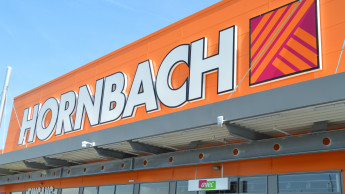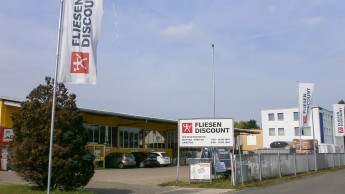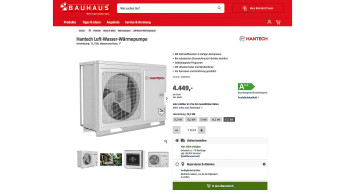
deep insights, facts & figures
25.07.2012
The French DIY market doubled its growth rate outright in 2011 compared to the previous year and so further stabilized the growth that had been continuing since it found its feet again after the slump in 2010. Sales across all channels of distribution achieved an increase of 2.6 per cent (2010: 1.3 per cent) to € 24.03 bn
Admittedly, the process developed quite differently in the individual channels, as is shown by the statistics produced by Unibal, a manufacturers’ association. The DIY stores gave clear proof of their supremacy through a disproportionate level of growth and the resulting gain of still more market share. They recorded sales of € 18.250 bn, including the € 2.19 bn generated by the garden segment, which amounts to 3.4 per cent more than the year before. In like-for-like terms the increase still came to 2.4 per cent. This translates into a 1.3 per cent expansion of their market share to 76.0 per cent. By contrast with other highly developed DIY markets, the French retailers are managing to keep their floorspace growth under control: it remained below the rate of sales growth, as had already been the case in 2010, so that average sales/m² rose by 2.6 per cent to € 2 628/m². Still stronger growth of 3.9 per cent was achieved by the builders’ merchants, the second largest channel of distribution, which reported sales to end customers of € 4.050 bn, thereby improving its market share slightly to 16.85 per cent. The upturn in new-build figures amounting to just under 22 per cent is seen as the reason for this. The traditional trade business kept its sales figures stable at € 730 mio. Unibal estimates the share of the French DIY market taken by e-commerce at some four per cent. Only three or four online shops are currently rated as having any relevance to sales figures. However, several DIY retailers are planning to expand their internet business by making their entire range of products accessible to customers throughout France. A new buying alliance has been announced from the garden area: since January 2012 the Le Club – Les Briconautes chain, which belongs to Mr. Bricolage, is doing its buying jointly with Groupe Sevea, number five in the garden centre market with its Pollen, Boabab and Villaverde lines. Nothing of any importance has changed in terms of the distribution of market share in the DIY retail segment: there is still a strong concentration on just a few groups, which appear under various brand names. The British Kingfisher Group with the Castorama and Brico Dépôt channels retains its share of nearly 34 per cent, closely followed by Groupe Adeo with Leroy Merlin and Bricoman, which together achieve a share approaching 32 per cent. In other words, two-thirds of the market is in the hands of two trading groups. Nevertheless, by no means does this indicate stalemate in the matter of innovative business types. For example, Groupe Adeo is working on a concept known as “Inventer la maison de demain”” (“Inventing the home of tomorrow”). Generally speaking, smaller formats are attracting more attention in France once more. “Singularisation SV2” is the Bricomarché concept for stores 3 500 m² in size, while at Mr. Bricolage the intention is to go ahead with stores of 2 000 m² - 3 000 m² under the name of L’Entrepôt du Bricolage. Convenience or neighbourhood supply stores are a major topic for many companies. These inner-city locations are around 1 000 m² in size. Mr. Bricolage and Weldom have already introduced such concepts.
Related articles
Read also

 Menü
Menü















